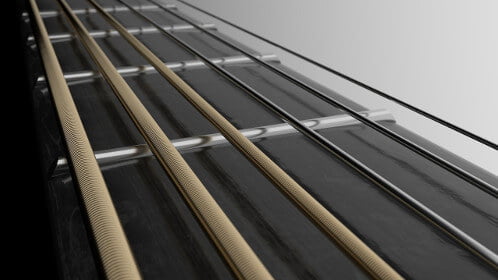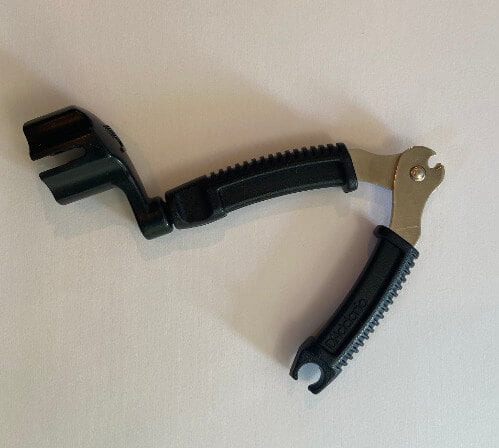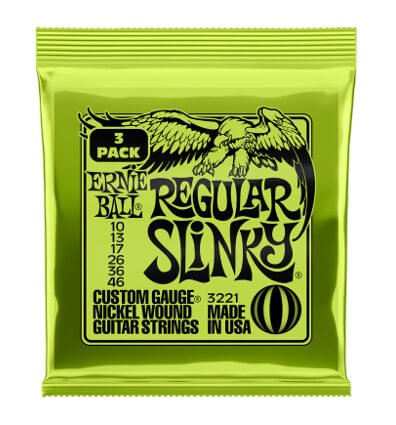Table of Contents
There are two ways that strings get changed on a guitar. Either you do it yourself or have a professional do it. Each method will incur different costs and is a job that will need to be done at some point. But how much does it cost to restring a guitar?
The cost to replace your guitar strings will generally be between 5 and 30 dollars. This depends on who does the work and your choice of strings. You can expect to save money by doing it yourself.
There are many options of strings and service centers that can do the work for you. It comes down to how comfortable you are doing it yourself. In this Killer Rig article, we will explore the costs of restringing a guitar.
Restringing Your Own Guitar
Cost Breakdown
The primary expense when restringing a guitar yourself is the cost of new strings. Prices can vary, but you can generally expect to pay between $6 and $10 for a decent set of strings from brands like Ernie Ball or D’Addario. Keep in mind, this is for a 6-string guitar.
If you choose to use a coated string from Elixir, you can expect to pay more. These sets will normally run for 10–15 dollars a pack.
Steps Involved
- Buying New Strings: The first step is to purchase a new set of strings. The gauge, or thickness, of the strings is an important factor to consider. Gauges are usually measured in thousandths of an inch, and the right gauge for you depends on your playing style and the type of guitar you have.
- Removing Old Strings: Care is needed when taking off the old strings. Place a towel on the floor to prevent any scratches to your guitar. Loosen the strings one at a time and then cut them with pliers or unwind them from the headstock.
- Installing New Strings: After removing the old strings, insert the ball end of each new string into the correct peg hole on the guitar. Make sure it’s firmly in place before proceeding. Insert the opposite end into the tuning peg and begin to tighten the string. But leave some slack for wrapping around the tuning peg.
- Tuning Your Guitar: Once all the new strings are installed, the final step is to tune your guitar. You can use an electronic tuner for this, or tune by ear if you have a reference note.
Additional Tools Needed
To complete the restringing process, you may also need some basic tools like pliers, cutters, and a tuner. Some guitarists also use a string winder to speed up the loosening and tightening of strings.
By following these steps and understanding the costs involved, you can effectively restring your guitar at home. This not only saves you money but also equips you with a useful skill as a guitarist.
Professional Restringing
Cost Breakdown
Opting for professional restringing will incur a higher cost compared to doing it yourself. The price can range from $20 to $60, which usually includes the cost of new strings.
What’s Included in the Service
When you pay for professional restringing, you’re not just paying for new strings. The service often includes:
- Replacement of old strings with new ones
- Tuning the guitar
- Basic cleaning and maintenance of the instrument
Some music stores may offer additional services like instrument setup or more extensive cleaning, which could affect the final price.
When to Opt for Professional Services
While restringing a guitar is a skill that can be learned, there are situations where professional help is advisable:
- You’re a beginner and not confident in restringing the guitar yourself.
- You have a specialized or vintage guitar that requires expert handling.
- You’re experiencing issues with your guitar that go beyond just old or broken strings, such as problems with intonation or action.
Choosing professional restringing ensures that the job is done correctly and can be particularly beneficial for those who are new to guitar maintenance. It also provides an opportunity for a more thorough check-up of your instrument.

Where Can I Get My Guitar Restrung?
If you don’t want to do the work yourself, there are plenty of service centers that will do it for you.
Most music shops will perform this service for guitarists, but will charge a different fee to do so. Guitar Center and Sam Ash stores offer this service and should be considered if you have one near you.

Guitar Center
There are many Guitar Center stores across the USA that will do this work for you. Normally they will charge $20 and have a few additional inspection points like:
- Tightening hardware
- Clean and polish the guitar
- Tune the guitar
This does not include the strings, however, which can range between 5 and 25 dollars. And so, all in, you will be looking at 25 to $45 for the complete service at Guitar Center.
This can be helpful if you are a beginner and don’t know how to properly inspect your guitar.
Sam Ash
Sam Ash is another music store that can offer this service. They generally have a similar price point, with most services costing between 20 and $50.
This does not include strings or parts. If you buy a set of guitars strings for $12, you will be looking at around 32 dollars for a change at Sam Ash.
This service consists of:
- Remove old strings
- Cleaning
- Install new strings
- Tune the guitar
Besides the standard inspections and cleaning, they will also adjust your guitar. For an extra fee. This could be beneficial if your guitar has been playing inconsistently lately.
Any of the prices mentioned can change at any time, so it’s best to call your local store and ask what their rates are.

Additional Costs: Setup and Maintenance
What is a Guitar Setup?
A guitar setup is a series of adjustments made to an instrument to improve its playability, intonation, and tone. This can include adjusting the truss rod, setting the action, and intonating the guitar.
Cost of Setup and Restringing
If you’re considering both a setup and restringing, you should be prepared for a higher cost. The combined service can cost around $120, depending on the specific needs of your guitar and the rates of the service provider.
When is a Setup Necessary?
A setup is generally recommended in the following situations:
- Your guitar’s playability has declined, affecting your ability to play comfortably.
- You’re experiencing issues with intonation, meaning the guitar doesn’t stay in tune across the fretboard.
- You’ve changed the type or gauge of your strings, which can affect the guitar’s setup.
Understanding the potential for additional costs like a setup can help you budget more accurately and ensure that your guitar is in optimal condition.
How Long Does it Take To Do Yourself?
The process of restringing a guitar generally takes about 25 to 30 minutes. This can, of course, vary depending on the person doing it and how comfortable they are with the process.
There is a bit of a learning curve at first, but after doing it a few times, it becomes second nature. Just like anything else, practice makes perfect. Some extras need to be factored in, things like:
- Fret Inspection
- Neck Inspection
- Cleaning
- Removing and replacing any covers
- Adjustments
Some of these are not necessary, depending on the guitar and strings. Others should be done with every change. Cleaning and inspections should be done every time you replace strings. If you don’t do this now, consider working it into your process.
Ever wonder how long strings last in their package?
FAQs
Will a music store restring my guitar?
Yes, if you have a few music stores nearby. There is a good chance that they have a professional on-site that can change your strings.
Most restring fees are the same depending on what they offer. But if you are just getting started and don’t know how, it’s best to phone around and find a shop that can change them for you.
Is it easy to restring a guitar?
If it’s your first time, then this could be a bit of a challenge for you. First, you need to decide if you should change one string at a time or all of them at once.
This will depend on the guitar, but is something that you should know. Some guitar technicians will teach you if it is your first time.
Does Guitar Center restring for free?
No Guitar Center charges for string changes. They do offer a free evaluation to offer a competitive price for any repairs.
If you bring down your guitar for an estimate, they may even let you watch them change the strings. This could be a great way to learn how to do it yourself.

